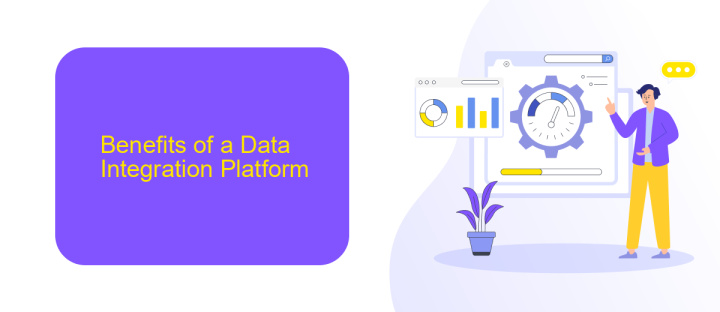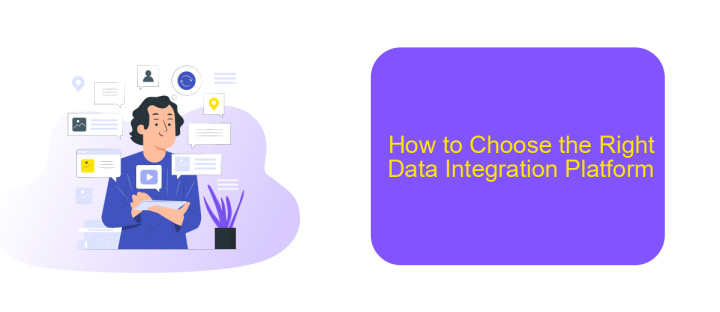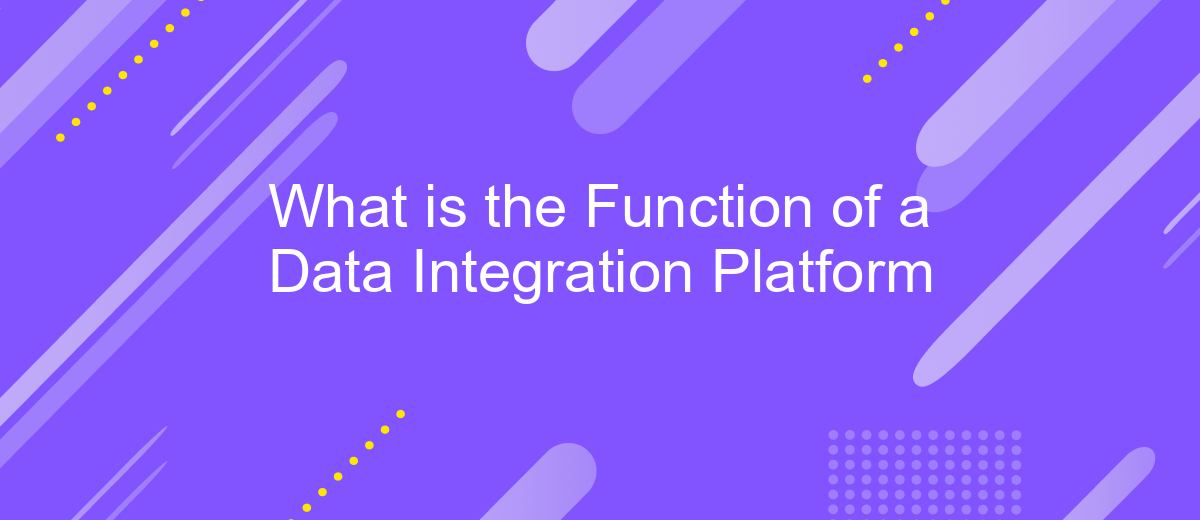What is the Function of a Data Integration Platform
A Data Integration Platform is essential in today's data-driven world, enabling organizations to seamlessly combine data from various sources into a unified view. This technology facilitates efficient data management, enhances decision-making, and supports real-time analytics. By streamlining data processes, a data integration platform ensures data consistency, accuracy, and accessibility, ultimately driving business growth and innovation.
Introduction
In today's data-driven world, businesses are inundated with information from various sources. Managing and integrating this data efficiently is crucial for informed decision-making and streamlined operations. A Data Integration Platform serves as a comprehensive solution to consolidate data from disparate systems into a unified view, enabling organizations to harness the full potential of their data assets.
- Seamless data transfer between different systems
- Real-time data synchronization
- Enhanced data quality and consistency
- Scalability to handle large volumes of data
One notable service in this domain is ApiX-Drive, which simplifies the integration process by providing a user-friendly interface and robust automation capabilities. By leveraging such platforms, businesses can reduce manual efforts, minimize errors, and ensure that accurate data is readily available for strategic initiatives. As we delve deeper into the functionalities of a Data Integration Platform, it becomes evident how indispensable these tools are for modern enterprises.
Benefits of a Data Integration Platform

A data integration platform streamlines the process of combining data from various sources, providing a unified view that enhances decision-making and operational efficiency. By automating data workflows, it reduces the need for manual data entry and minimizes errors, saving time and resources. This ensures that businesses can access real-time, accurate information, which is crucial for strategic planning and maintaining a competitive edge.
Moreover, platforms like ApiX-Drive facilitate seamless integration between different systems, making it easier to manage data across multiple applications. With user-friendly interfaces and robust support, these services enable even non-technical users to set up and manage integrations effortlessly. This democratization of data integration allows organizations to be more agile and responsive to market changes, fostering innovation and growth. Overall, a data integration platform not only optimizes data management but also empowers businesses to leverage their data more effectively.
Key Features of a Data Integration Platform

A Data Integration Platform is essential for businesses to streamline their data management processes. These platforms offer several key features that enhance data handling, integration, and accessibility.
- Data Connectivity: Seamlessly connect to various data sources, including databases, cloud services, and on-premises systems.
- Data Transformation: Transform data into a usable format through cleaning, filtering, and enriching processes.
- Workflow Automation: Automate data workflows to reduce manual intervention and increase efficiency.
- Real-Time Integration: Ensure data is integrated in real-time for up-to-date insights and decision-making.
- Scalability: Easily scale the platform to handle increasing data volumes and complexity.
- Security: Protect data with robust security measures, including encryption and access controls.
- ApiX-Drive Integration: Utilize services like ApiX-Drive for simplified integration setup and management, reducing the need for extensive technical knowledge.
These features make Data Integration Platforms indispensable for modern enterprises, allowing them to manage their data more effectively and gain valuable insights. By leveraging tools such as ApiX-Drive, businesses can further simplify and enhance their data integration processes.
How to Choose the Right Data Integration Platform

Choosing the right data integration platform is crucial for ensuring seamless data flow across your organization. The first step is to identify your specific needs and objectives. Consider the types of data you need to integrate, the sources of this data, and the frequency of integration.
Next, evaluate the ease of use and flexibility of the platform. A user-friendly interface and customizable features can significantly reduce the time and effort required to set up and maintain integrations. Platforms like ApiX-Drive offer intuitive setup processes and robust customization options.
- Scalability: Ensure the platform can grow with your business.
- Security: Look for strong data encryption and compliance with industry standards.
- Support: Reliable customer support and comprehensive documentation are essential.
- Cost: Consider both upfront and ongoing costs, balancing them against the platform's features and benefits.
Finally, test the platform with a pilot project to assess its performance and compatibility with your existing systems. This hands-on experience will provide valuable insights and help you make an informed decision. A well-chosen data integration platform can streamline operations and drive business growth.
- Automate the work of an online store or landing
- Empower through integration
- Don't spend money on programmers and integrators
- Save time by automating routine tasks
Conclusion
In conclusion, a data integration platform is essential for modern businesses seeking to streamline their data management processes. By consolidating data from multiple sources into a unified system, these platforms enhance data accuracy, accessibility, and usability. This not only facilitates better decision-making but also boosts operational efficiency and agility.
Moreover, platforms like ApiX-Drive simplify the integration process by offering user-friendly interfaces and robust automation capabilities. They enable businesses to seamlessly connect various applications and services without extensive technical expertise. As a result, companies can focus more on strategic initiatives rather than being bogged down by complex data integration challenges. Ultimately, leveraging a reliable data integration platform is a strategic move that can drive significant business growth and innovation.
FAQ
What is a Data Integration Platform?
Why do businesses need Data Integration Platforms?
How does a Data Integration Platform improve data quality?
Can a Data Integration Platform handle real-time data integration?
What features should I look for in a Data Integration Platform?
Apix-Drive is a simple and efficient system connector that will help you automate routine tasks and optimize business processes. You can save time and money, direct these resources to more important purposes. Test ApiX-Drive and make sure that this tool will relieve your employees and after 5 minutes of settings your business will start working faster.


